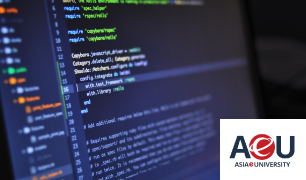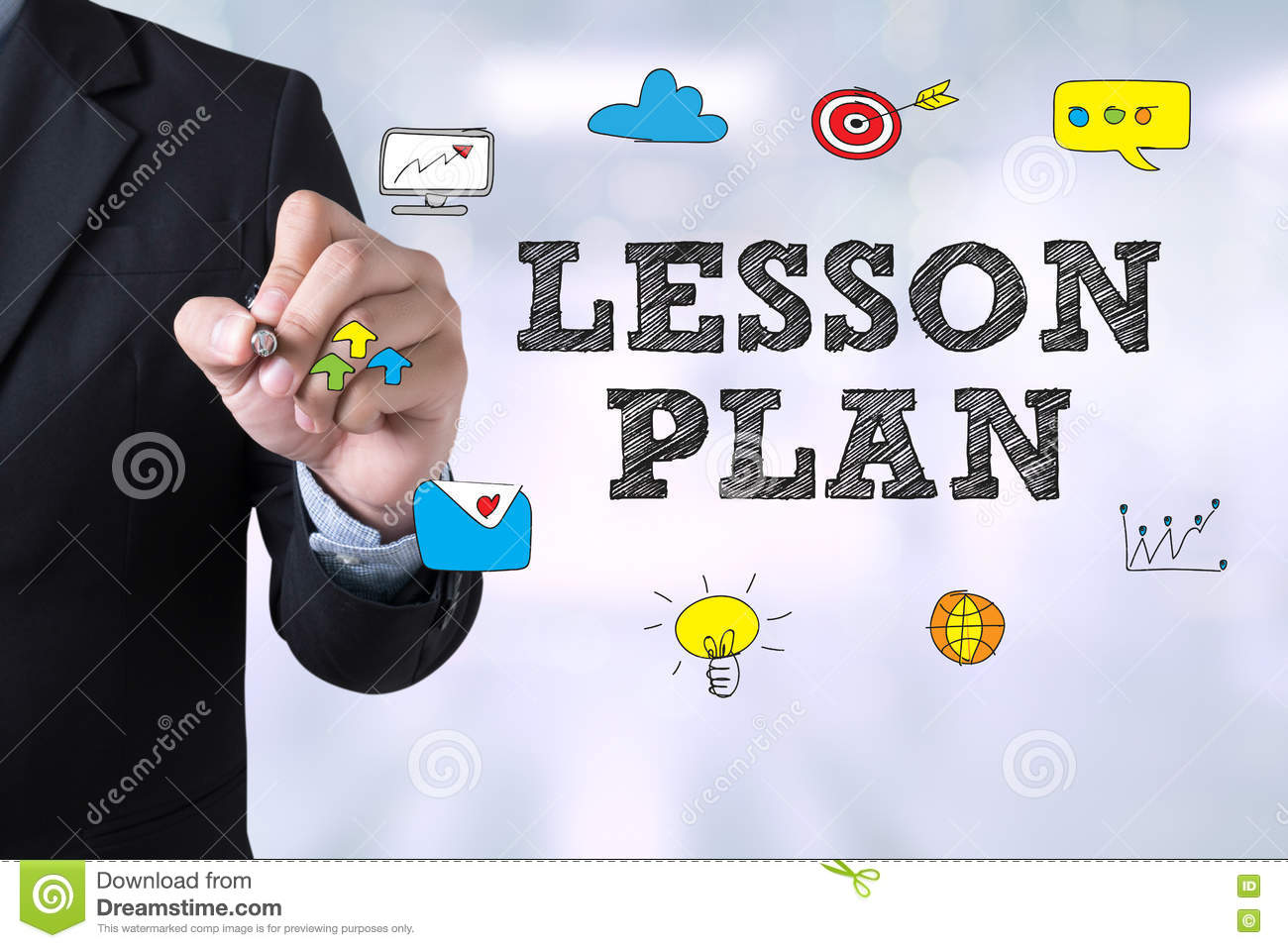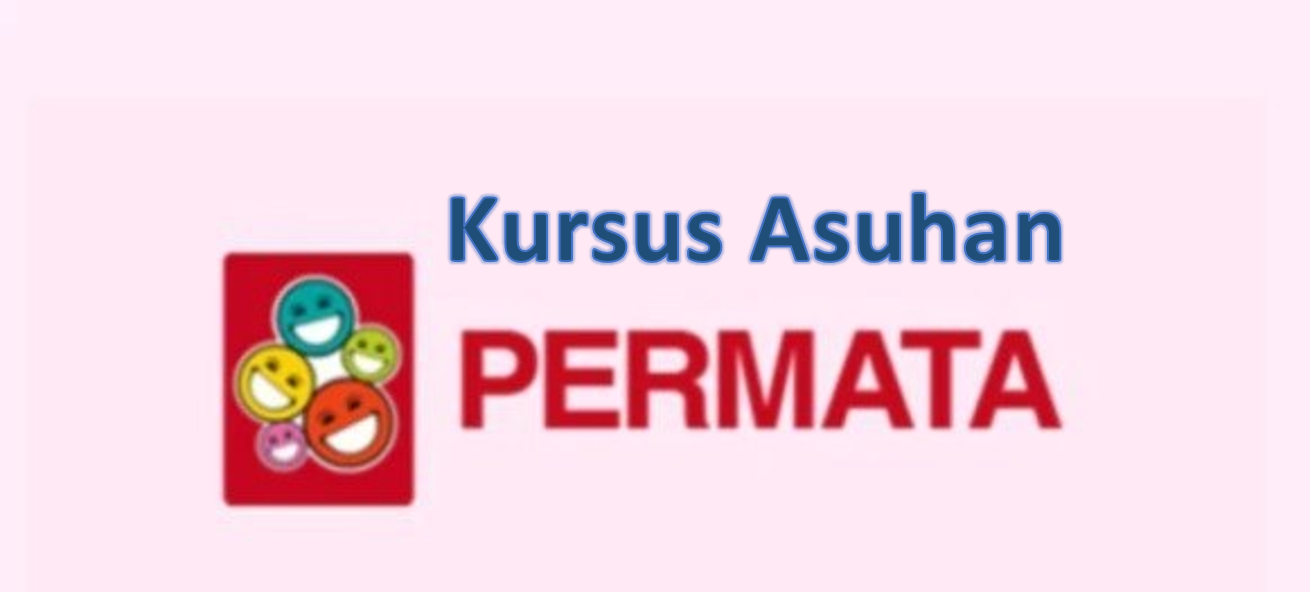 myeduskills
myeduskills
Available courses

Management Information System
The subject covers the basic concepts of MIS. This subject will enable students to understand and appreciate the role of computer-based information systems in business management activities. More specifically, students will be able to identify the components of MIS and its applications used in the business organization. The coverage includes telecommunication and network, functional and enterprise the system, database, ethics, and social issues in MIS
Programme : Graduate Diploma in Business Management
Course Code : MIS306
Duration : 120 hours 12 weeks

Business Law
The subject covers the basic concepts of MIS. This subject will enable students to understand and appreciate the role of computer-based information systems in business management activities. More specifically, students will be able to identify the components of MIS and its applications used in the business organization. The coverage includes telecommunication and network, functional and enterprise the system, database, ethics, and social issues in MIS
Programme : Graduate Diploma / Bachelor in Business Management
Course Code : MBL305
Duration : 28 hours / 10 weeks

Business Communication
This course is an introduction to communication skills that aims at enhancing student’s presentation and writing skills. Students will gain experiences in public speaking through the practice and exercises to various speaking modes, in different situations. The students will also gain experiences through the practice and exercises in writing, from simple letters to press releases. New forms of communication will be discussed such as e-mails, blogs, and the effects of the Internet on communication.
Programme : Bachelor of Business Administration
Course Code : MBC502
Duration : 4 Weeks (30 hours per week)

Consumer Behaviour
This course aims to provide students with an insight into how consumers make buying decisions and the various factors, psychological and social, that influence the decision-making process which will be useful to marketers.
Programme : Graduate Diploma in Business Management / Bachelor of Business Administration (Hons)
Course Code : MKB411
Duration : 4 Weeks (40 hours per week)

Entrepreneurship and Innovation
This
course will introduce students to frameworks for understanding entrepreneur and
other relevant areas of its concern. It draws upon thought, research from
various areas. This course is not a comprehensive review of all concepts on
entrepreneurship and innovation. However, the student should gain a basic
understanding of influential views shaping entrepreneur and its surroundings.
As such students are advised to read beyond the text topic.
Programme : Master of Business Administration
Course Code : MEI730
Duration : 4 Weeks (30 Hours/week)

Event Management
This course aims to provide students with an understanding on the basic knowledge of events management. It will enhance students’ understanding on the basic concepts of event management, the nature of celebrations, events definitions and events types, event management subfields, typology of planned events, the importance of events. It also enables students to grasp the core principles behind the success of an event. They will learn about the main functions of management in events, risk management, people management, time management, motivation, professional and personal qualities of event managers. Students also could explore the issues of funding and budget of events, which also include the importance of sponsorships and tips on increasing projected income. Finally, students will be able to gain knowledge on how to conduct the events evaluation. Here, students will be exposed to the sample of surveys and forms being used to assist in events evaluation of any events.
Programme : Bachelor of Business Administration (Hons)
Course Code : MEM503
Duration : 4 Weeks (30 hours per week)

International Business
This
course discusses the overall global environment (macro level) impacting
businesses and strategies used by companies around the globe in handling
enhance competition, more complex operations and changing dynamics of
International Business. Discussions will
include topics like industry analysis, strategy formulation, and strategy
implementation. Learning and discussions materials will be biased towards
addressing International Business issues in the Asia and Pacific regions.
Programme : Master of Business Administration & Master in Management
Course Code : MIB603
Duration : 4 Weeks (30 hours per week)

Internet Marketing
This subject aims to help students understand and implement internet marketing programs effectively. The focus is on using marketing levers to vary the level of intensity that the consumers has with the Website. In addition to build a relationship with the customers through the four stages: from awareness, to Exploration/ Expansion, to Commitment, and possibly through Dissolution. It also focuses on the forces that the internet can bring to marketing: the individual and interactivity and ultimately to create intense relationship with customers.
Programme : Graduate Diploma in Business Management
Course Code : MIM219
Duration : 4 Weeks (30 hours per week)

Introduction to Finance
This course to equip students with the understanding and analysis of financial statements and
on the management of the working capital of the firm which relevant to
executives.
Programme : Bachelor in Business Administration
Course Code : MIF208
Duration : 4 Weeks (30 hours per week)

Managerial Economics
Economic
analysis is required for various concepts such as demand, profit, cost, and
competition. Managerial
economics is the study of how economic forces affect organizations and how their
leaders can use economic principles to
achieve optimal outcomes (Mark Hirschey and Eric Bentzen).
Programme : Master of Business Administration
Course Code : MEC604
Duration : 4 Weeks (30 hours per day)

Marketing Management
This course was designed to enhance students understanding of how to
analyze, formulate, implement, and manage marketing strategies and policies at
the tactical and strategic management levels.
Programme : Master of Business Administration
Course Code : MKM602
Duration : 4 Weeks (30 hours per week)

Marketing Management
This subject discusses the important components of marketing plan, implementation and controlling. The students will have to develop a marketing plan and solve marketing problem. In addition, this subject will explain various related topics to customer satisfaction, buyer behaviour, strategic planning, competitors and services.
Programme : Graduate Diploma in Business Management
Course Code : MMM217
Duration : 4 Weeks (30 hours per week)

New Business Venture
This
course will introduce students to frameworks for understanding entrepreneur and
other relevant areas of its concern. It draws upon thought, research from
various areas. This course is not a comprehensive review of all concepts on
entrepreneurship and innovation. However, the student should gain a basic
understanding of influential views shaping entrepreneur and its surroundings.
As such students are advised to read beyond the text module.
Programme : Doctor of Business Administration
Course Code : MNV869
Duration : 4 Weeks (40 Hours/week)

Office Application Software
This
course is designed to provide an understanding and practical skills in using
application software such as Microsoft words, Excel and PowerPoint. It also
covers the World Wide Web, social learning tools and collaborative tools and
exposes the student to the basic skills of information searching required to be
a successful workplace learners.
Programme : Bachelor of Business Administration
Course Code : MOA203
Duration : 4 Weeks (30hours/week)

Principle of Management
This course studies the role and duties played
by the management, which is associated with planning, organizing, leadership and controlling in an organization. This course will
explore current and future management issues in order to achieve the efficient
and effective management.
Programme : Bachelor of Business Administration
Course Code : MPM201
Duration : 4 Weeks (30 hours per week)

Project Management
This subject covers the basics of project management where students will learn what project management involves and how to approach it successfully. The topics include why a plan is so important to the success of a project, managing project team, key success factors and tools that are available to manage a project effectively.
Programme : Bachelor of Business Administration (Hons)
Course Code : MPM505
Duration : 4 Weeks (30 hours per week)

Service Quality Management
This subject is designed to encourage students to develop an understanding on how excellent customer service can and should be delivered to customers using case studies on the subject. They also learn to create their own cases drawing from their personal experiences. By taking part in other participants’ cases, they develop sensitivity to different situations.
Programme : Bachelor
Course Code : MSQ501
Duration : 4 Weeks (30 Hours/week)

Strategic Management - Asian Business and Strategic Management
This course introduces the key concepts, tools,
and principles of strategy formulation and competitive analysis. It is
concerned with managerial decisions and actions that affect the performance and
survival of business enterprises. The course is focused on the information,
analyses, organizational processes, and skills and business judgment managers
must use to devise strategies, position their businesses, define firm
boundaries and maximize long-term profits in the face of uncertainty and
competition.
Programme : Master of Business Administration & Master in Management
Course Code : MSM606 & MSM620
Duration : 4 Weeks (30 Hours/week)

Supply Chain Management
This
course covers the major issues in SCM, including definition of a supply chain,
role of inventory, advanced production-inventory models, supply contracts,
bullwhip effect and information sharing, vendor-managed inventories and other
distribution strategies, third-party logistics providers, managing product
variety, information technology, SCM and international business.
Programme : Master of Business Administration
Course Code : MMS707
Duration : 4 Weeks (30 hours per week)

Basic 3D Modeling
The course will cover the arts and sciences by
providing students with technical knowledge, an understanding of aesthetics,
and practical experience in 3D animation. With a core emphasis on learning how
to develop and express ideas, solve problems and create 3D content, this course
will lead students through problems, project and process-based learning
experiences that will teach them how to define, design and develop 3D content,
computer graphics, and synergise from classical animation to a 3D animation
package. This course will give students the background necessary to animate in
any media/software with strong skills in one of several specialty areas of
animation, such as character animation and special effects animation.
Programme : Bachelor of Digital Creative Media
Course Code : CBD317
Duration : 4 Weeks (30 hours per week)

Computer Communication and Networking
Different
types of transmission media and theory for high speed communication. It describes
the various functions associated with interface units to achieve reliable data
transmission which includes data errors detection and their linking to data
link protocol. Relations between reliable data transfer when physically
connected are also discussed. Different types of computer network are described
together with operation on interface circuit associated with each type of
network and their related communication.
Programme : Bachelor of ICT
Course Code : CCN413
Duration : 4 Weeks (30 Hours/week)

Computer Programming
This
course is to introduce students to computing and programme development in the C
programming language. This includes a brief introduction to basic programming
concepts, an understanding of the syntax and semantics of the basic control
structures of C, learning C's fundamental data types and structures,
understanding the design and methodical construction of computer programmes,
array, functions, structure and files, and lastly, practice in these through
creating several programmes in C.
Programme : Bachelor of ICT
Course Code : CCP203
Duration : 4 Weeks (30 Hours/week)

Computer Security
Computer
security in the corporate setting fills the critical need for security
education. Its comprehensive, balanced, and well-organized presentation
emphasizes implementing security within corporations using existing commercial
software and provides coverage of all major security issues. This course
introduces from the basic of computer security, authentication, cryptography
and key security management issues such as threats and attacks.
Programme : Bachelor of ICT
Course Code : CCS200
Duration : 4 Weeks (30 Hours/week)

Cryptography
This course provides the background for the application and implementation of security mechanisms covered in the other courses. It deals with both theoretical and practical aspects of cryptography, to give an insight to the problems that arise in cryptography and the tools used to solve them. It introduces both symmetric key cipher systems and public key cryptography, covering methods of obtaining the objectives of CIA (confidentiality, integrity and availability).
Programme : Master of ICT Management
Course Code : CSC610
Duration : 4 Weeks (30 Hours/week)

Discrete Mathematics
Discrete mathematics is the study of mathematical structures in ICT that are fundamentally discrete in the sense of not supporting or requiring the notion of continuity. Students will learn set theory, principles of counting and fundamentals of logic. Students will also study relations, functions, directed graphs and basic number theory.
Programme : Bachelor of ICT
Course Code : CDM300
Duration : 4 Weeks (30 Hours/week)

Fundamental Concept of ICT
Fundamental concept of ICT provides students with a broader knowledge background on ICT and deeper
understanding of problems and solutions in developing ICT strategies and
systems for business organizations and society. Topics designed aim to assist
students with a concrete knowledge foundation in ICT and supporting
technologies as well as to demonstrate to students the applicability of ICT in
daily activities.
Programme : Bachelor of ICT
Course Code : CCT201
Duration : 4 Weeks (30 Hours/week)

Human Computer Interaction
Important basic
concept of Human Computer Interaction (HCI) field. It aims the students to grasp
the relationship between interface and cognitive sciences. The students
will be taught the methodology in designing a good interface for a system.
Concepts and theory practices in this course are important for application
design and development. The knowledge learnt can be practiced for better
interface design of application.
Programme : Bachelor of ICT
Course Code : CHC401
Duration : 4 Weeks (30 Hours/week)

ICT Project Management
This course provides
an introduction to basic project management concepts that are relevant in managing projects. It introduces methods, processes and project management disciplines commonly used by development and ICT service management practitioners.
Programme : Bachelor of ICT
Course Code : CPM399
Duration : 4 Weeks (30 Hours/week)

Information Systems Analysis & Design
This
course will cover the concepts, skills, methodologies, techniques, tools and
perspectives essential for systems analysts to successfully develop information
systems. It can also be characterized by the following themes; systems
development is firmly rooted in an organizational context, systems development
is a practical field, systems development is a profession, systems development
has significantly changed with the explosive growth in databases, data-driven
systems architectures, Rapid Application Development (RAD) and the Internet.
Success in systems analysis and design requires not only skills in
methodologies and techniques but also project management skills for managing
time, resources and risks.
Programme : Bachelor of ICT
Course Code : CAD300
Duration : 4 Weeks (30 Hours/week)

Management Information Systems
Basic understanding
of Management Information System (MIS). Integrating topics of management and
organization theory, information and communication theory, and systems theory
relevant to managing an organization as well as information resources are
covered. It includes computer hardware and software, telecommunications, and
database concepts and emphasizes the e-commerce and Internet based business
models to get a competitiveness of global based business environments.
Programme : Bachelor of ICT
Course Code : CIS307
Duration : 4 Weeks (30 Hours/week)

Aqidah
Kursus ini
membahaskan tentang Aqidah Tauhid dan implikasinya ke atas orang Islam,
menjelaskan konsep syahadatain dan
tuntutannya, dalam kehidupan orang Islam,
menghuraikan perkara yang membatalkan
Iman, serta bagaimana memelihara, memperbaikki dan meningkatkan Iman, mengupas
rukun Iman yang mencakupi kepercayaan kepada Allah, Malaikat, Rasul, Kitab,
Qada’ dan Qadar dan percaya kepada hari akhirat. Ini termasuk hakikat
kehidupan, kematian, alam Barzakh serta
kesannya kepada reality penganut Islam.
Program : Diploma in Islamic Studies & Bachelor in Education (Teaching Islamic Studies in Primary Schools)
Kod Program : SAK214
Durasi : 4 Minggu (30 jam seminggu)

Asas Tulisan Jawi
Kursus ini membincangkan sejarah perkembangan tulisan dan ejaan Jawi di
Malaysia. Subjek ini juga bertujuan mengajar kaedah menulis dan mengeja
menggunakan tulisan Jawi yang betul dan memberi bimbingan tentang cara
penulisan Jawi menggunakan khat Nasakh dan Rak’ah.
Program : Bachelor in Education (Teaching Islamic Studies in Primary Schools) / Diploma Islamic Studies
Kod Kursus : SJA126 / SJA227
Tempoh Masa : 4 Minggu (30 jam seminggu)

Basic Drawing
The course introduces
students to the fundamentals of drawing. Students will be taught various
methods of drawings such as perspective drawing, figurative drawing, landscape
drawing and others. Students will also learn how to understand and appreciate
drawing as part of the arts elements and principles.
Programme : Bachelor of Digital Creative Media
Course Code : CBD313
Duration : 4 Weeks (30 hours per week)

Creative Thinking
This course is designed to introduce students to various aspects of creative thinking. It will expose them to different thinking methodologies within the idea-generating process in order to solve problems. This course will include lectures & presentations in which students will analyse the various context influenced by personal and cultural content. Students will be encouraged to explore and identify an issue or topic and be able to carry out the appropriate research, analysis and solution that will result in a unique and personal statement
Programme : Bachelor of Digital Creative MediaCourse Code : CCT313
Duration : 4 Weeks (30 hours per week)

Marketing Management and Global Impact
In this course, students will be exposed with the important of marketing concepts, tools, frameworks and issues. Students will examine the marketing implications in creating customer value and learn several perspectives on planning and how to draw up a formal marketing plan.
Duration : 40 hours (8 days)

Demand, Supply and Market Equilibrium
In this course, we will analyse on how a market functions. It begins with concept definition of the market. After discussing the concept of demand and the factor that determines demand, we will move to the concept of supply.
Duration : 40 hours (8 days)

Inventory Management
This course examines the basic concepts of inventory management and its important role played in a business. It also examines concepts and frameworks for understanding the Inventory Management, JIT, material requirements planning and forecasting models.

Knowing Your Market and Products
The focus of marketing is on the consumer of goods and services. A successful marketing strategy is dependent on effective market research taking the product life-cycle into account. This course covers the basics of effective market research.
Duration : 40 hours (8 days)

Supply Chain Management
This course examines the needs and important of Supply Chain in today’s competitive business world. It also examines concepts and frameworks for understanding the Supply Chain Management. Challenges in managing supply chain will also be discussed.
Duration : 40 hours (8 days)

Trait Theory of Leadership and Motivation
In this course, we’ll review the various theories of leadership and basics of motivation and theories, starting from early theories of motivation to contemporary theories of motivation.

Understanding Consumer Behaviour
An understanding of the needs and behaviours of consumers in an intrinsic component of the development and implementation of successful marketing actions. Specific topics address the consumer decision process, internal and external influences on consumer behaviour.
Duration : 40 hours (8 days)

Creating a Safe Environment for Children
The microcourse examines the importance of a safe environment for children. Emphasis is on safety indoors and outdoors both in preschools and the home, steps teachers, parents and caregivers should take to ensure that children are taught about various aspects of safety. The course consists of 3 topics.
Duration : 40 hours (8 days)

Enhancing Home - School Partnerships
The microcourse discusses how home-school partnerships can be enhanced for the well-being of children. Emphasis is on what is home-school partnership, its importance and how it can be enhanced based on the Joyce Epstein’s model. The course consists of 3 topics.
Duration : 40 hours (8 days)

How Children Learn
This microcourse discusses the theories explaining how children learn. Topics in the course focus on classical and operant conditioning, observational learning, meaningful learning, and the information processing model. This knowledge of how children will help teachers and parents to better understand the children in the classroom or at home. This microcourse consists of 3 topics.
Duration : 40 hours (8 days)

Positive Guidance for Children
The microcourse examines how teachers, parents and caregivers can use positive guidance in developing the social and emotional well-being of children. Focus is what is positive guidance, difference between discipline and positive guidance, indirect and direct guidance strategies. The course consists of 3 topics.
Duration : 40 hours (8 days)

Work Stress and Leadership Communications
You will learn in this course on how to understand the nature, causes and consequences of work stress along with individual and organisational methods for managing stress.
Duration : 40 hours (8 days)

Digital Learning Technologies
Participants are introduced to a range of digital tools and technologies and how they support
students’ learning across all subjects. The digital tools examined include web content,
software and hardware Each of these tools and technologies are critically evaluated to
determine their pros and cons and effective integration in classroom teaching and learning
towards preparing students for the 21st century.

Curriculum and Pedagogical Strategies Enhancing Learning
The course examines the general principles of curriculum design and development, focusing on lesson planning and classroom management. Various student-centred pedagogical strategies are discussed which seek to enhance learning and higher order thinking in preparing students for the 21st century.

How Students Learn and New Generation Learners
The course examines how students learn focusing on the three psychological theories explaining human learning - the behaviourist persepective, the cognitivist perspective and the constructivist perspective of learning. Focus is on the application of these theories in the classroom in enhancing learning and thinking from preschool to tertiary level education. Also examined are the characteristics of new generation learners who are entering schools and higher education institutions and how they learn.
Marketing Management and Global Impact
In this course, students will be exposed with the important of marketing concepts, tools, frameworks and issues. Students will examine the marketing implications in creating customer value and learn several perspectives on planning and how to draw up a formal marketing plan.
Duration : 40 hours (8 days)

Demand, Supply and Market Equilibrium
In this course, we will analyse on how a market functions. It begins with concept definition of the market. After discussing the concept of demand and the factor that determines demand, we will move to the concept of supply.
Duration : 40 hours (8 days)

Inventory Management
This course examines the basic concepts of inventory management and its important role played in a business. It also examines concepts and frameworks for understanding the Inventory Management, JIT, material requirements planning and forecasting models.
Duration : 40 hours (8 days)

Knowing Your Market and Products
The focus of marketing is on the consumer of goods and services. A successful marketing strategy is dependent on effective market research taking the product life-cycle into account. This course covers the basics of effective market research.
Duration : 40 hours (8 days)

Supply Chain Management
This course examines the needs and important of Supply Chain in today’s competitive business world. It also examines concepts and frameworks for understanding the Supply Chain Management. Challenges in managing supply chain will also be discussed.
Duration : 40 hours (8 days)

Trait Theory of Leadership and Motivation
In this course, we’ll review the various theories of leadership and basics of motivation and theories, starting from early theories of motivation to contemporary theories of motivation.
Duration : 40 hours (8 days)

Understanding Consumer Behaviour
An understanding of the needs and behaviours of consumers in an intrinsic component of the development and implementation of successful marketing actions. Specific topics address the consumer decision process, internal and external influences on consumer behaviour.
Duration : 40 hours (8 days)

Writing the Doctoral Research Proposal
Writing the Research Proposal can be daunting task for students who do not done it before. This course discusses the process of developing a Research Proposal for a masters or doctoral thesis in the social and behavioural sciences involved in investigating the human condition. Usually, the Research Proposal consists of THREE main sections, namely Introduction, Review of Literature and Methodology which is discussed in this course including defence of the Research Proposal.

Kursus Asuhan PERMATA NEGARA
Kursus Asuhan PERMATA adalah kursus yang wajib dihadiri dan lulus oleh semua pengasuh, penyelia dan pengusaha TASKA. Sesetengah orang berpendapat pengalaman sebagai seorang ibu atau nenek sudah mencukupi untuk menjadi pendidik / pengasuh TASKA. Ini adalah tidak benar kerana untuk menjadi seorang pendidik/pengasuh memerlukan latihan yang berdasarkan penyelidikan dan amalan-amanlan terbaik tentang perkembangan kanak-kanak. Oleh demikian Kursus Asuhan PERMATA digubal berdasarkan hasil penyelidikan dan teori oleh pakar-pakar dalam bidang. Anda didedahkan kepada prinsip-prinsip asas Kurikulum PERMATA Negara yang berlandaskan teori dan penyelidikan tentang perkembangan kanak-kanak daripada pelbagai sudut, kaedah pengajaran, pentaksiran dan tingkah laku kanak-kanak.

Creating a Safe Environment for Children
The microcourse examines the importance of a safe environment for children. Emphasis is on safety indoors and outdoors both in preschools and the home, steps teachers, parents and caregivers should take to ensure that children are taught about various aspects of safety. The course consists of 3 topics.
Duration : 40 hours (8 days)

Enhancing Home - School Partnerships
The microcourse discusses how home-school partnerships can be enhanced for the well-being of children. Emphasis is on what is home-school partnership, its importance and how it can be enhanced based on the Joyce Epstein’s model. The course consists of 3 topics.
Duration : 40 hours (8 days)

How Children Learn
This microcourse discusses the theories explaining how children learn. Topics in the course focus on classical and operant conditioning, observational learning, meaningful learning, and the information processing model. This knowledge of how children will help teachers and parents to better understand the children in the classroom or at home. This microcourse consists of 3 topics.
Duration : 40 hours (8 days)

Positive Guidance for Children
The microcourse examines how teachers, parents and caregivers can use positive guidance in developing the social and emotional well-being of children. Focus is what is positive guidance, difference between discipline and positive guidance, indirect and direct guidance strategies. The course consists of 3 topics.
Duration : 40 hours (8 days)

CDE101 Digital Learning
There is an impressive body of research evidence on how students learn whether they be in preschool, primary school, secondary school, college, university or the corporate sector. This microcredential examines how students learn with digital technologies. Focus is on how behaviourism, cognitivism and constructivism explain how people learn and how educators apply these theories in the learning environment in which digital technologies are employed. An Integrated Theory of Digital Learning (ITDL) is introduced which ties these theories in explaining how students learn effectively and efficiently using digital technologies. Finally, the course examines the principles of digital learning and how it impacts learning design.

CDE102 Digital Technologies
A variety of digital technologies are available to assist educators in enhancing learning of students since the emergence of the internet and the web. The course examined the digital technologies used in the design, development and delivery of teaching and alignment to how students learn and meeting needs of diverse learners. The digital technologies include learning management systems, video conferencing tools for synchronous interaction, social media tools for asynchronous interaction, gamification software, video and audio making tools, animation software and others.

CDE103 Digital Pedagogy
Oftentimes educators get carried away with with new technologies and ignore pedagogy. Digital pedagogy is defined simply as the art and science of teaching using digital tools and technologies in cyberspace. Focus is on the variety of digital pedagogical strategies, steps involved in designing digital courses and types of active learning activities. Also examined are alternative and authentic assessment methods such as online quizzes, audio & video presentations, e-portfolios and others. Issue discussed include authentication and academic honesty.

CDE104 Digital Content
Traditionally, content has been provided to students at all levels of education and corporate training through text and images. In recent times the shift is towards digital content made available online. As mentioned in the IDLM, student-content interaction is an important part of learning and the challenge is facilitating this interaction. About two-thirds of student time is spent interacting with content whether it be reading text, watching a video, listening to a podcast, doing a quiz and so forth. This course discusses the creation and curation of content that will facilitate learning and explore the viability of the self-instructional module. Focus is on the curation of available content and the creation of educator made content.

PDT103 Teaching Listening and Speaking
The teaching of listening and speaking in the second language classroom has been neglected compared to reading and writing. This course deals with the teaching of listening and speaking focusing on the theory underlying listening and speaking, strategies and techniques for teaching listening & speaking, designing and developing listening & speaking activities and assessment of listening & speaking skills. The course presents an overview of recent research and developments in the teaching of listening and speaking and how these areas can be taught in an integrated. The course examines how human understanding spoken discourse, the nature of spoken interaction, the differences between speech and writing and the ways in which oral fluency fosters language development course examines how human understanding spoken discourse, the nature of spoken interaction, the differences between speech and writing and the ways in which oral fluency fosters language development

PDT104 Language Assessment and Testing
The
course provides an overview of many of the key concepts involved in the
assessment of language knowledge and use, with detailed explanation of what is
involved in designing or choosing tests for the four language skills as well as
more general testing of grammar and vocabulary. It gives students a solid
understanding of important testing terms and critique testing literature. The
course examines the range of assessment tools used in evaluating language
skills, determining the validity and reliability of each of the tools, analysis
of the results of the tools used, making decisions and informed choices. It
also discusses basic statistics, item analysis, format of tests, specific
language tests, construction of tests and discrete point and integrative tests

PDT105 Digital Technology and Materials Development
The course examines the adoption of more traditional materials and digital technology in teaching language. The traditional materials include the use of flash cards, various visual and audio aids and language games. Also discussed is the use of digital technology and web resources in teaching reading, writing, listening and speaking. Learners are introduced to the selection, development, adaptation and evaluation of a range of materials and media for effective second language teaching. It examines the nature of the materials/technologies, including their place in the curriculum, the assumptions underlying them, and the roles of teachers and learners implied by them.

PDT016 Linguistics and Grammar
This introduces students to linguistics of English focusing on morphology, semantics, syntax, phonetics, phonology and pragmatics. It course provides students with the concepts and ideas used to describe and analyse the English language, as well as a theoretical insight into the language system. It also includes an introduction to English grammar focusing on word order, determiners, pronouns, adjectives, adverbs, clauses, pronunciation and intonation.

PDT107 Lesson Planning and Classroom Management
This course presents best practices in lesson planning that English language teacher make before they enter the classroom. The effectiveness of a teaching session depends on the diligent planning of the lesson. Focus is on the daily decisions a teachers makes for the successful outcome of a lesson. The course also engages student in best practices in classroom and behavior management, from organising time, materials, and classroom space to strategies for managing individual and large group student behaviors, and other arrangements for classrooms. Key concepts of effective classroom management are discussed, including creating a positive environment, engaging students and developing class rules.

PDT108 Teaching Practicum
The primary goal of the teaching practicum is to provide students with teaching experience within a classroom setting. The students receive instruction and feedback from faculty supervisors who are responsible for the courses in which the practicum take place. Students’ practical will vary in the extent to which emphasis is placed on instructional time, course development (e.g., preparation of syllabus, assignments, and bibliography), assignment grading, and other curriculum review and planning issues and tasks. . Basically, students spend 20 hours in a live ESL learning environment observing an ESL class, and/or practice teaching and tutoring ESL students in-person or online.

Data Engineer
This course about the techniques to design a data model, build warehouses, automate the processing and handle various scales of information. During the program, you will be able to make data-driven decisions by collecting, transforming, and publishing data, as well as you will gain real-world experience via a number of hands-on projects. This course covers Data Modeling, Cloud Data Warehouses, Data Lakes with Spark and Automate Data Pipelines.
Instructor : Viet Sang Dinh & LE Thi Ngoc Tho
Duration : 4 Weeks (160 Hours)

Deep Learning Engineer
Deep Learning Certification is our master certification to groom AI talent potential and career path in AI in the area of Deep Learning. Our certification is a certified short course that starts from the basics to the practical skills needed to solve real world problems. This includes an in-depth study of data pipelines and deep learning model development from deploying deep learning to production. It also incorporates theoretical and hands-on sessions to reinforce technical concepts. Lab-intensive training and certification exams are designed to prepare participants for advancement into a career path with competent skills and competence.
Instructor : Viet Sang Dinh & LE Thi Ngoc Tho
Duration : 4 Weeks (160 Hours)

Full-Stack Developer
This course covers the UI/UX, Fundamentals and Javascript Framework, Backend Development, Integration, Architecture, System and DevOps.
Instructor : Viet Sang Dinh & LE Thi Ngoc Tho
Duration : 4 Weeks (160 Hours)

UX Designer
In this course you will learn how to create a digital user experience that is ready to be handed off for development. Start by building familiarity and fluency with design research fundamentals to identify the user and the solutions needed. Synthesize your research, and use design sprints to take an idea from concept to low-fidelity prototype. Finally, turn your low-fidelity prototype into a high-fidelity design, and improve its performance based on data.
Instructor : Viet Sang Dinh & LE Thi Ngoc Tho
Duration : 4 Weeks (160 Hours)

HAJI DAN UMRAH
Kursus ini menjelaskan tentang ibadah haji dan umrah menurut perspektif Islam. Ini merangkumi penerangan tentang pengertian, hukum, tatacara serta hikmah melaksanakannya.
Durasi : 2 Jam
Tenaga pengajar : Syed Muhammad Shahrizal

Work Stress and Leadership Communications
You will learn in this course on how to understand the nature, causes and consequences of work stress along with individual and organisational methods for managing stress.
Duration : 40 hours (8 days)

SUSTAINING THE SUPERVISORY WORKING PARTNERSHIP
Most PhDs begin with an initial meeting between the student and their supervisor. This is usually the first chance both parties get to sit down and discuss the research. The supervisor should explore in detail the student's academic background.The student, on the other hand should outline the research intent/ idea of a research proposal and explain how he/she wants to proceed with the first stages of the doctoral study.
Duration : 2 Hours
Instructor : Professor Dr. Siow Heng Loke

BUILDING THE SUPERVISORY RELATIONSHIP
The purpose of this module is to acquaint the supervisors and students on the importance of building the supervisory relationship so as to successfully complete the doctoral programmes on time.
Duration : 2 Hours
Instructor : Professor Dr. Heng Loke Siow
Skip course categories

















